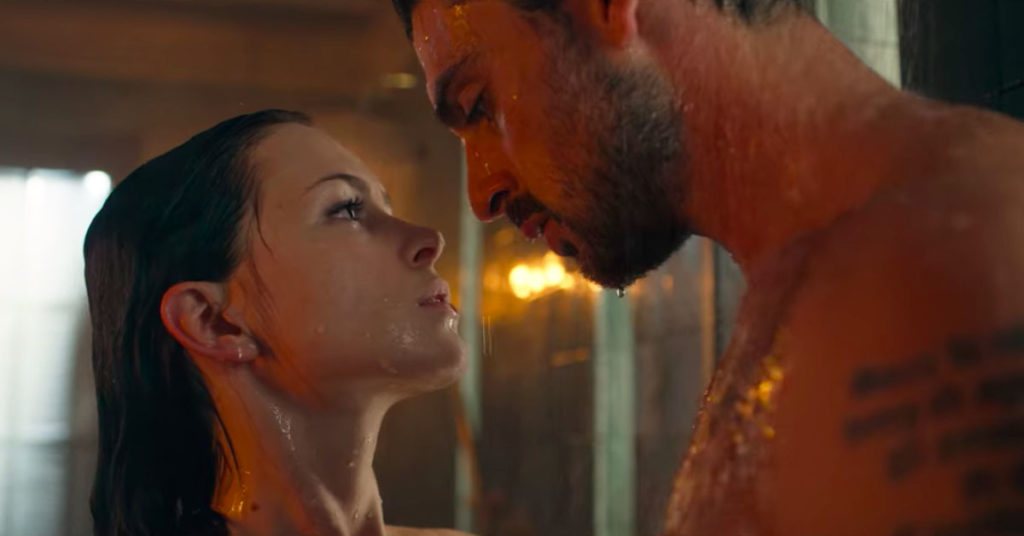
365 Days is actually extremely harmful and should never have been put on Netflix
This movie is rape culture incarnate
365 Days has been a bit of a joke ever since it made its way to Netflix’s number one most watched spot this week. The movie is so awful and unbelievable it almost makes you forget that the whole premise is one big rape fantasy, and should have never been put on Netflix in the first place – let alone be categorised as a “romance” film on the site. The truth is, it’s not a joke. The movie is insanely popular now, it’s been watched by hundreds of thousands of people and women are tweeting things like “omg need my own Massimo to imprison me”. It’s gone too far.
Strip it back and look at it bare bones: A man kidnaps a woman who he’s been obsessed with for years, sedates her, holds her captive, routinely grabs her, throws her around and assaults her, walks in on her naked, sleeps next to her without her permission and – after all that – manages to make her fall in love with him. Without the big budget, attractive actors and glamorous setting, it’s a horror movie. A horror movie about sexual assault, forced imprisonment and kidnapping.
You might think I’m taking this too far, or that “it’s just a bit of fun” and “it’s not actually going to hurt anyone” but it does. This kind of material, when consumed by masses and masses of people, can seriously influence the public’s perception of rape and sexual assault.
Nina Burrowes, founder of The Consent Collective, an activist organisation aimed at helping people understand sexual violence and domestic abuse, told The Tab: “The very same people who are watching this and internalising it could be sat on a jury in a few week’s time, deciding the fate of someone in a similar situation. And the fact that this sentiment, that ‘rape is romantic’, is still present in the public psyche is so worrying. All it takes is one bit of doubt in that jurors mind in favour of the defendant and it changes everything”

Nina continued: “Even under the circumstances of this being a fictional movie. You can sell that idea as a concept. I look forward to the day where they couldn’t even make a film like this because they know the public just wouldn’t buy it, but at the moment, they obviously are buying it completely. That should give us pause.
“Also, if you want to do a thought experiment, all you have to do is take the lead male character and make him unattractive. Then think of that male unattractive character keeping a woman captive in his home for a year and realise how completely unacceptable that is.
“Also, if you’re somebody who has had a real life experience of sexual violation, you’re trying to navigate the world where this kind of movie exists. Not only exists but where it’s glorified and it’s made sensual and sexual. And the truth is the actual reality of these stories is vomit inducing.”
Nina compared 365 Days to the film Room, where a woman is kidnapped by a man who keeps her captive in a soundproof room in his back garden for years. She said: “That is a realistic example of this situation, and I have no problem with Room as a film because as an audience member you experience the violation and the horror of her situation. That’s realistic. In 365 Days, the movie is trying to get the audience to experience what it’s like being kidnapped and experience sexual harm but then find it romantic. That’s the problem there.”

Women’s Aid, the UK’s leading organisation providing support for domestic abuse survivors, agree. Laura Dix, the National Community Engagement Manager at Women’s Aid said: “What we have read about the [365 Days] is concerning. In the film, the male lead (Massimo) imprisons and routinely assaults the female lead (Laura). There are clear examples of abuse, violence, sexual assault, threats, control, and contradictory, gaslighting behaviour.
“Films and TV series have huge potential to raise awareness of abuse. However this film is problematic because it portrays abuse, manipulation and control as romance. Violence and abuse are not expressions of love, they are ways to control and torture. It is confusing and irresponsible to portray abuse as desirable when the reality for survivors is very different.”
That is exactly what 365 Days is. Irresponsible. All it takes is one male viewer to watch this movie, see the positive reaction from women and the mass appreciation as a whole, and he thinks this behaviour is acceptable. Moreover, all it takes is one woman to watch the film and ascribe Massimo’s behaviours to being in love, or Laura’s behaviours to consent, and she is put at risk as a result of that.
I’m not saying I want it taken off Netflix. I’m saying it never should have been put on there in the first place. To echo Nina’s point earlier – I want a world in which there is no appetite for this kind of movie at all. For it to be made, watched, or even considered by a production company – let alone leading online streaming service catering to millions. But right now, there is appetite for that. Clearly we’ve got a long way to go.
To find out more about domestic abuse and sexual violence visit Women’s Aid or The Consent Collective.
If you want support around an abusive relationship contact the Women’s Aid Live Chat service.
To find out if you are in a healthy relationship or not, here some questions to answer.
Related stories recommended by this writer:
• 27 reasons why ‘365 Days’ is the worst thing Netflix has ever produced
• Despite what the judge in the Ched Evans case said, drunk consent is not consent
• Women’s Aid issue statement over Adam’s “clear warning signs” of emotional abuse





















